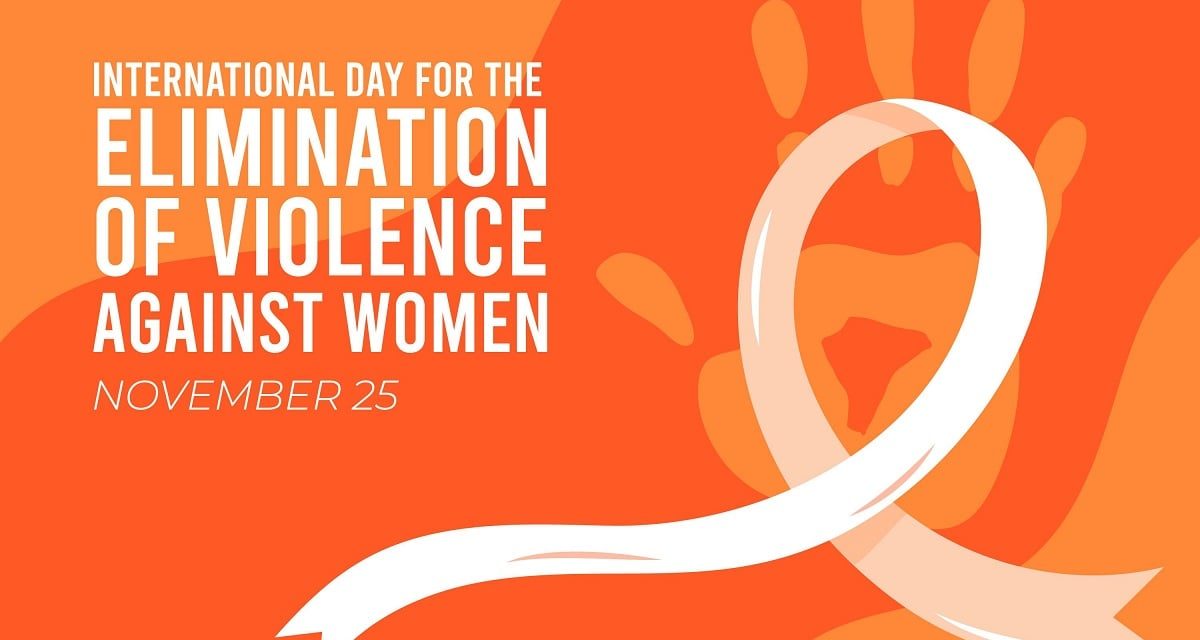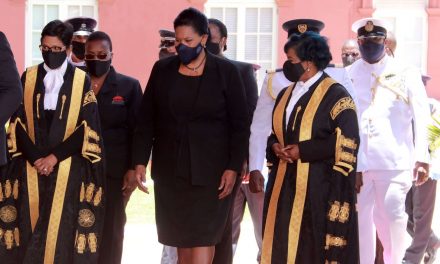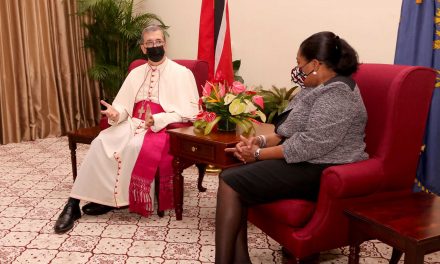Many experts, clerics, politicians and social media commentators have put forward their views and suggestions. Conferences have convened and marches and rallies have been held. Yet 1 in 3 women continue to experience intimate partner violence in Trinidad and Tobago, a statistic that is also reflected at the global level. Violence against women is not an inevitable or incontrovertible part of life but ending this scourge requires a multi-pronged approach and depends upon the cooperation of every sector of society. Support groups for victims should be well-resourced and funded and the police, who have made laudable strides in their approaches to dealing with gender-based violence (GBV) must continue to be trained and evaluated. Survivors have to be supported and protected, the eyes and ears of the public alert and citizens unafraid to report suspected cases of abuse. No longer can we hide behind the old colloquial saying “stay out of man and woman business”. Importantly, men, the main perpetrators of GBV, must acknowledge their role in perpetuating abuse, challenge negative stereotypes which normalise aggression and violence in men and boys, and take action to correct harmful attitudes and behaviours towards women. There can be no solution to GBV without the active participation of men. Age-appropriate conversations should start as early as primary school where boys can be taught how to deal with rejection and their emotions, understand the concept of consent, and learn that GBV refers not only to physical abuse, but also sexual, emotional and financial exploitation. Even where men do not physically harm women, they may be perpetrators of more subtle forms. Today is an opportunity for men to reflect and ask themselves some pertinent questions. Do I try to control my partner’s finances? Do I constantly belittle, degrade or humiliate them? Do I isolate my partner from her family? Do I make sexually suggestive remarks or unwanted advances to my friends or colleagues? If yes, then what am I prepared to do about it? Self-awareness and seeking the necessary help are key to dealing with and ultimately ending violence against women. Perpetrators and victims of GBV can seek and receive counselling from the National Family Services Division of the Ministry of Social Development and Family Services, accessible at 623-2608 Ext 6701-7. Gender-based violence has affected and traumatised more than enough women, families and communities in our nation and worldwide. As the global community today observes the International Day for the Elimination of Violence Against Women, I encourage all citizens to do their part in ending all forms of violence against women once and for all.
Message on the International Day for the Elimination of Violence Against Women

Many experts, clerics, politicians and social media commentators have put forward their views and suggestions. Conferences have convened and marches and rallies have been held. Yet 1 in 3 women continue to experience intimate partner violence in Trinidad and Tobago, a statistic that is also reflected at the global level. Violence against women is not an inevitable or incontrovertible part of life but ending this scourge requires a multi-pronged approach and depends upon the cooperation of every sector of society. Support groups for victims should be well-resourced and funded and the police, who have made laudable strides in their approaches to dealing with gender-based violence (GBV) must continue to be trained and evaluated. Survivors have to be supported and protected, the eyes and ears of the public alert and citizens unafraid to report suspected cases of abuse. No longer can we hide behind the old colloquial saying “stay out of man and woman business”. Importantly, men, the main perpetrators of GBV, must acknowledge their role in perpetuating abuse, challenge negative stereotypes which normalise aggression and violence in men and boys, and take action to correct harmful attitudes and behaviours towards women. There can be no solution to GBV without the active participation of men. Age-appropriate conversations should start as early as primary school where boys can be taught how to deal with rejection and their emotions, understand the concept of consent, and learn that GBV refers not only to physical abuse, but also sexual, emotional and financial exploitation. Even where men do not physically harm women, they may be perpetrators of more subtle forms. Today is an opportunity for men to reflect and ask themselves some pertinent questions. Do I try to control my partner’s finances? Do I constantly belittle, degrade or humiliate them? Do I isolate my partner from her family? Do I make sexually suggestive remarks or unwanted advances to my friends or colleagues? If yes, then what am I prepared to do about it? Self-awareness and seeking the necessary help are key to dealing with and ultimately ending violence against women. Perpetrators and victims of GBV can seek and receive counselling from the National Family Services Division of the Ministry of Social Development and Family Services, accessible at 623-2608 Ext 6701-7. Gender-based violence has affected and traumatised more than enough women, families and communities in our nation and worldwide. As the global community today observes the International Day for the Elimination of Violence Against Women, I encourage all citizens to do their part in ending all forms of violence against women once and for all.






